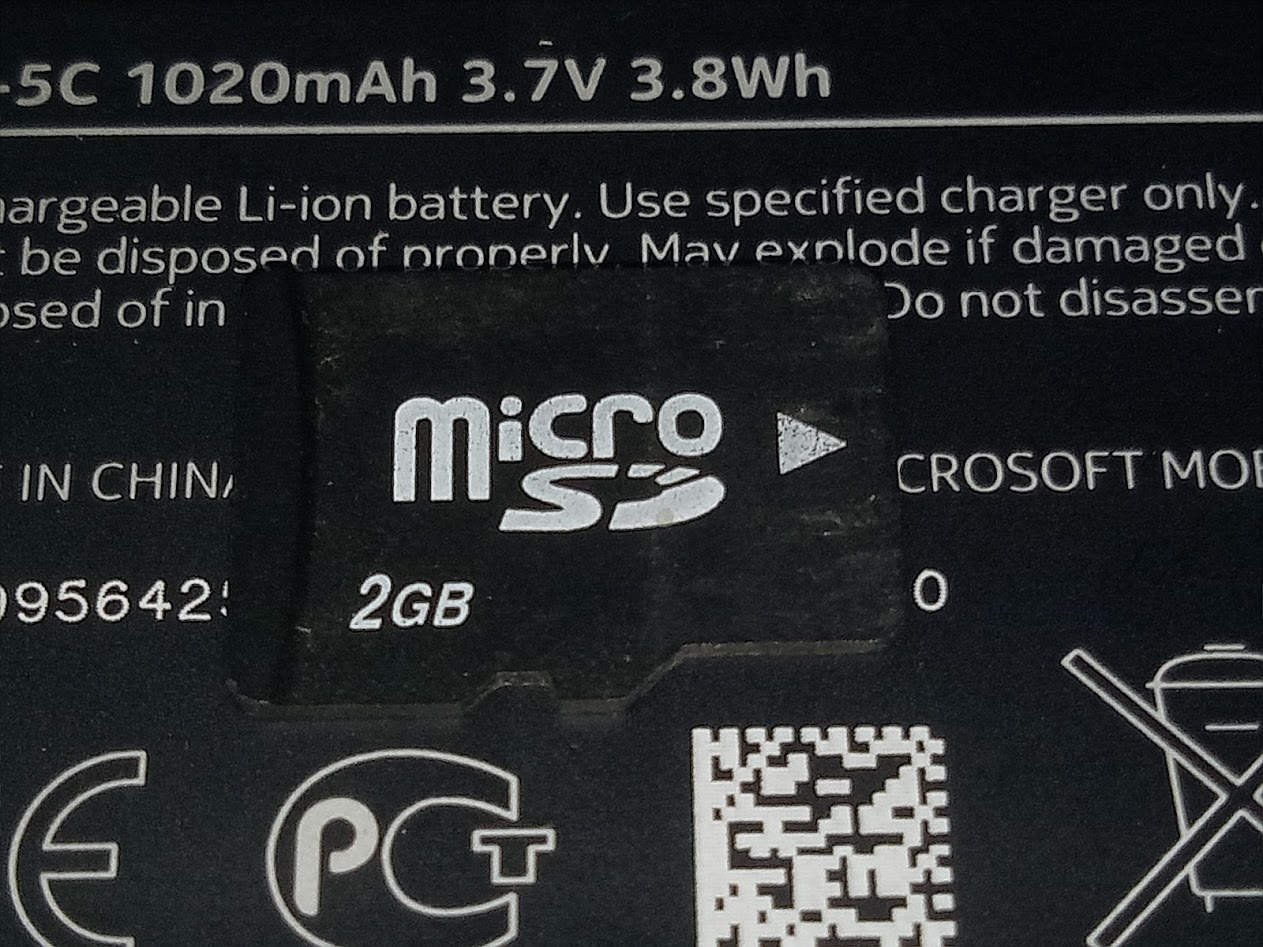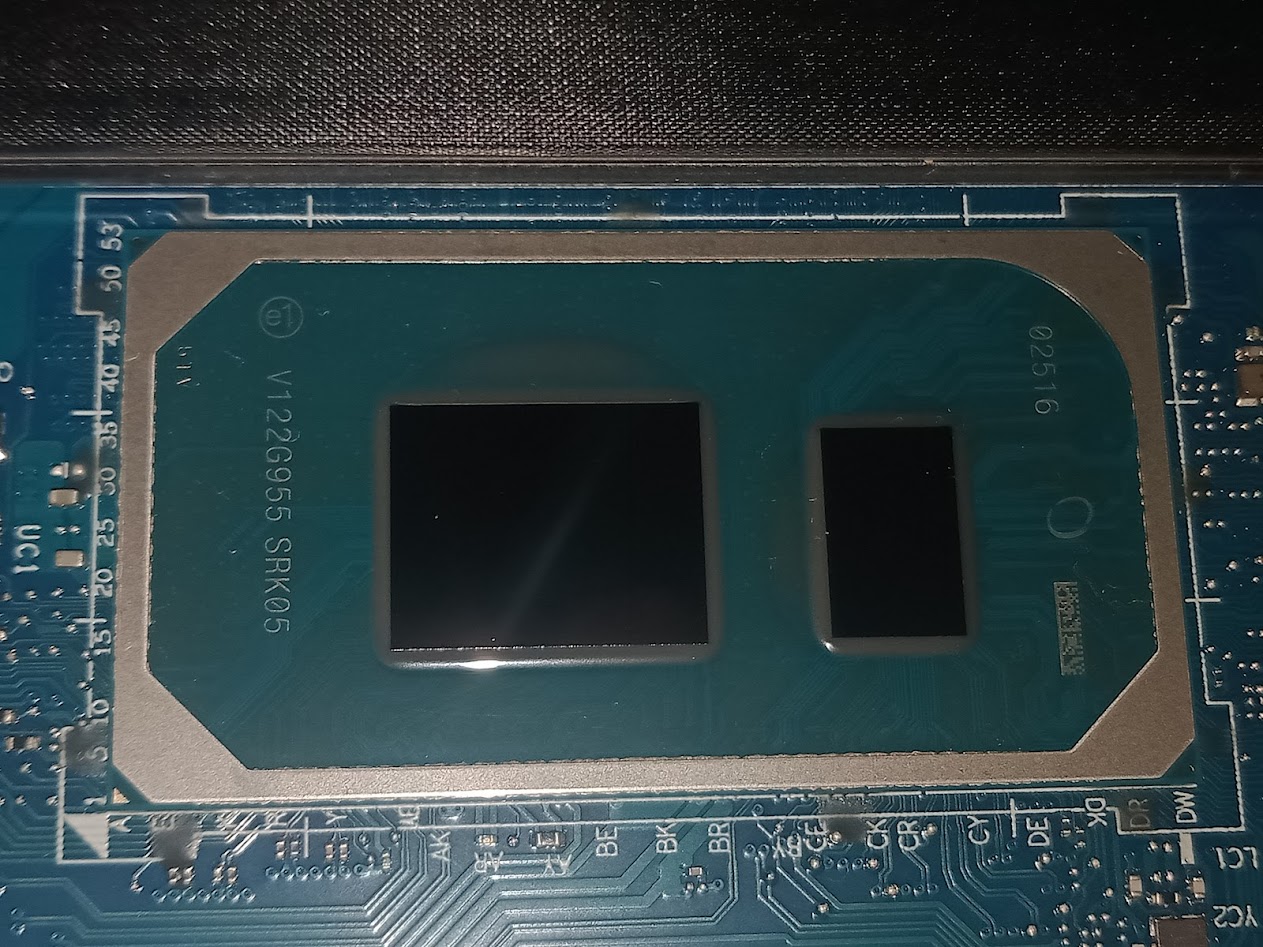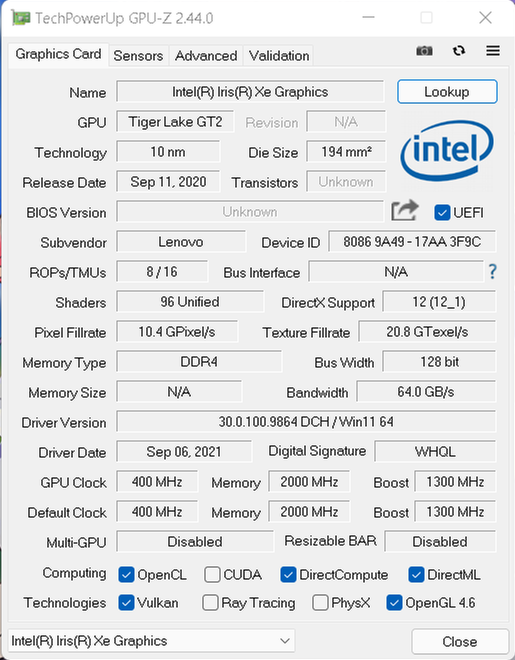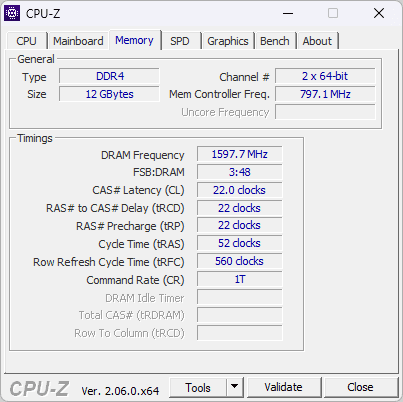Comparing: V-GeN 2GB MicroSD vs Intel Iris Xe Graphics (80EUs, Tiger Lake) [Disk]
In this comparison, we analyze two Disks: V-GeN 2GB MicroSD and Intel Iris Xe Graphics (80EUs, Tiger Lake) [Disk], using synthetic benchmark tests to evaluate their overall performance. This side-by-side comparison helps users understand which hardware delivers better value, speed, and efficiency based on standardized testing. Whether you're building a new system or upgrading an existing one, this benchmark-driven evaluation offers valuable insights to guide your decision.

V-GeN 2GB MicroSD
| Type: | Disks |
|---|---|
| Model: | V-GeN 2GB MicroSD |
| Capacity: | 2GB |
| Interface: | Standard SD |

Intel Iris Xe Graphics (80EUs, Tiger Lake) [Disk]
| Type: | Disks |
|---|---|
| Model: | Intel Iris Xe Graphics (80EUs, Tiger Lake) [Disk] |
| Capacity: | 2GB |
| Interface: | DDR4 |
Specification Comparison Table
This specification comparison presents technical details of several devices or components to help you understand the key differences between each option. Use this table as a reference to determine which device best suits your needs.
| Specification | V-GeN 2GB MicroSD | Intel Iris Xe Graphics (80EUs, Tiger Lake) [Disk] |
|---|---|---|
| Brand | V-GeN | - |
| Format | MicroSD | VRAM Disk |
| Capacity | 2GB | 2GB |
| Interface | Standard SD | DDR4 |
Submission Comparison Table
This submission comparison table displays the number and details of benchmark data submissions from various devices or components. This information helps you understand the performance based on the benchmarks that have been tested, as well as providing an overview of the consistency and popularity of the available benchmark results.
| No. | Benchmark Software | V-GeN 2GB MicroSD | Intel Iris Xe Graphics (80EUs, Tiger Lake) [Disk] |
|---|---|---|---|
| 1 | ATTO Disk Benchmark - 64M |
Read: 17.54 MB/s Write: 9.72 MB/s |
Read: 2430.00 MB/s Write: 2450.00 MB/s |
| 2 | CrystalDiskMark |
Read: 18.25 MB/s Write: 10.70 MB/s |
Read: 2758.52 MB/s Write: 2109.43 MB/s |
Submission Comparison Chart
This chart visualizes the benchmark scores comparison between two hardware devices based on submitted data.
Media Gallery
A collection of photos of tested hardware. These images can help you identify the physical form, model, and variant of the hardware in question. These photos are from our own documentation, and if they are not available we may not be able to document them.
About Hardware V-GeN 2GB MicroSD
V-GeN 2GB MicroSD is a small-capacity memory card that is still widely found in older devices such as feature phones, MP3 players, or early generation digital cameras. Using the conventional MicroSD standard, this card has high compatibility with various devices, although its data transfer performance is relatively low when compared to the new generation microSDHC or microSDXC cards.
With a capacity of only 2GB, these cards are more suitable for storing lightweight files such as text documents, configuration files, or a limited number of songs. Currently, cards like this are mostly utilized for special needs such as bootloader recovery, light backups, or simply backup storage for legacy systems.
The test was conducted using a Lenovo IdeaPad Slim 3i 14ITL6 with 12GB DDR4 Dual Channel RAM, running Windows 11 22H2 operating system, and using a VENTION USB 3.0 Card Reader with GL3224 controller connected to a USB 3.1 Gen 1 port.
From the performance testing results, the card recorded read speeds of 18.25 MB/s and write speeds of 10.70 MB/s in CrystalDiskMark. While in the Cross Platform Disk Test, the read speed reached 22.41 MB/s and write speed was 10.27 MB/s. These results reflect the typical performance of a low-capacity microSD, which is still sufficient for light use but clearly lags behind modern microSD cards.
Device Test:
Device: Lenovo IdeaPad Slim 3i 14ITL6 (using VENTION USB 3.0 Card Reader GL3224 Controller)
RAM: 12GB DDR4 3200MHz Dual Channel (8+4)
OS: Windows 11 22H2
USB: USB 3.1 Gen 1
Sunday, 27 November 2011 21:52:31 | Update: 1 month ago
About Hardware Intel Iris Xe Graphics (80EUs, Tiger Lake) [Disk]
Intel Iris Xe Graphics (80EUs, Tiger Lake) is the integrated graphics solution (iGPU) of the 11th generation of Intel Core processors, specifically the Tiger Lake series. With 80 Execution Units (EUs) and support for Intel's latest graphics architecture, Iris Xe is capable of delivering significantly better performance than previous generations, including in terms of lightweight graphics rendering, 4K video playback, and casual gaming. Another advantage is its excellent power efficiency as it is directly integrated in the CPU, making it ideal for thin and power-saving laptops.
In this test, Iris Xe Graphics was configured to utilize part of its shared memory as a VRAMDisk. The VRAMDisk concept allows the use of a portion of VRAM-which in iGPUs like Iris Xe comes from the main system RAM-as high-speed storage. While not as fast as physical RAM-based RAMDisks, VRAMDisks on iGPUs still offer very high read/write speeds, mainly due to the optimization of the graphics architecture and the wide memory bandwidth.
The test was conducted on a Lenovo IdeaPad Slim 3i 14ITL6, with an Intel Core i5-1135G7 processor, 12GB DDR4 3200MHz dual channel RAM, and Windows 11 22H2 operating system. Based on data from dxdiag, the dynamically available VRAM reaches 6GB, and in this test, 2GB was allocated as VRAMDisk using GPU RAM Drive software.
Benchmark results from CrystalDiskMark show read speeds of 2758.52 MB/s and write speeds of 2109.43 MB/s. These speeds are significantly higher than SATA SSDs and even close to mid-range NVMe SSDs, making VRAMDisks on iGPUs an attractive experimental solution for temporary data caching, storage performance testing or other specialized scenarios. With a 128-bit bus width and support for 3200MHz DDR4 memory, Iris Xe VRAMDisk shows that even integrated graphics can be creatively utilized for high-speed storage tasks.
Device test (testbed):
Device: Lenovo IdeaPad Slim 3i 14ITL6
CPU: i5 1135G7
RAM: 12GB DDR4 3200MHz Dual Channel (8+4)
OS: Windows 11 22H2
Friday, 06 August 2021 04:34:19 | Update: 1 month ago


